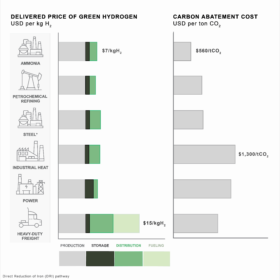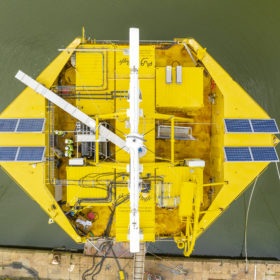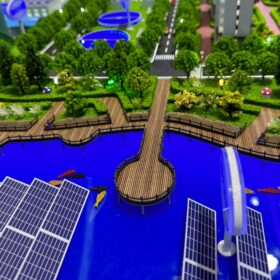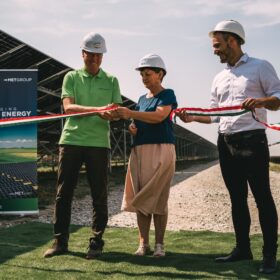Hungary approves measures for solar on apartment buildings
Hungary has decided to allow apartment owners to jointly install solar panels and will only permit solar plants equipped with grid-connected inverters from July 2025.
Midea Hiconics releases new residential all-in-one battery storage systems
The Chinese company says its three-phase Hienergy series can pair with PV arrays of up to 8.5 kW, with battery storage reaching up to 40.8 kWh.
Hungary deploys 1.3 GW of solar in January-October period
Hungary installed 1.3 GW of solar between January and October, bringing its cumulative PV capacity to 7.3 GW by the end of October, according to new government data.
Hungary expected to surpass 300,000 residential solar installations
Hungary’s Ministry of Energy says it will support more than 25,000 households with residential solar installations through its subsidy scheme, which launched earlier this year, taking the total number of installations to in excess of 300,000.
The Hydrogen Stream: Harvard researchers say H2 costs underestimated
Harvard University researchers say hydrogen costs are underestimated due to unaccounted storage and distribution variability across sectors, while Kore Infrastructure has told pv magazine that it aims to reach a levelized cost of hydrogen (LCOH) of between $1/kg and $2/kg.
Platio debuts new walkable solar panels
The Hungarian company said its new products can handle a load of 300 kg. The modules are available with power outputs of 23.65 W and 59.68 W and can be integrated with wood-plastic composite, wood, stone, or ceramic floorings.
Hungary’s residential PV subsidy scheme draws 20,000 applicants
The Hungarian government says 20,000 households have signed up for its PV subsidies scheme, which offers up to HUF 5 million ($14,125) per home installation. The original HUF 75.8 billion budget was increased by HUF 30 billion in July.
The Hydrogen Stream: H2Mare project links electrolyzers to wind turbine
The German government says that the H2Mare OffgridWind project in Denmark has connected two electrolyzers to a wind turbine for hydrogen production, while Ontras Gastransport and H2 Energy Europe have agreed to define the technical and commercial framework for hydrogen transportation in its Green Octopus Mitteldeutschland pipeline project.
Assessing floating PV costs across Europe
Researchers have analyzed the viability of floating PV in terms of net present value, internal rate of return, and LCOE. They included 25 European countries in their work, including Germany, the United Kingdom, Spain, and Italy.
MET Group completes 23.4 MW of solar in Hungary
Switzerland-based energy producer MET Group has finished building a 23.4 MW solar project in eastern Hungary. It will generate enough energy to supply around 13,000 local homes and has a life expectancy of 30 years.









